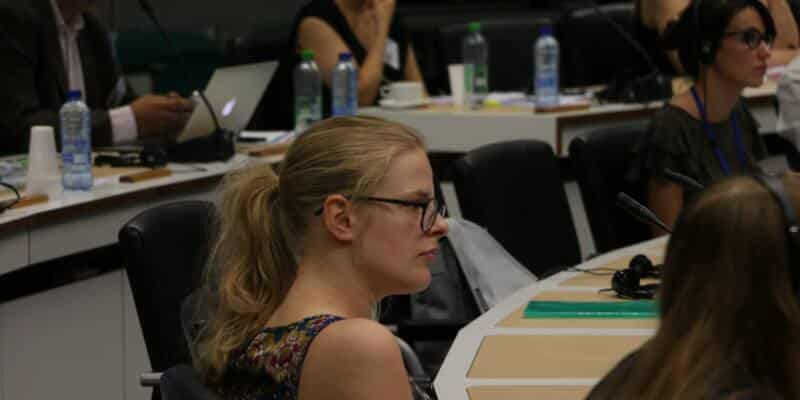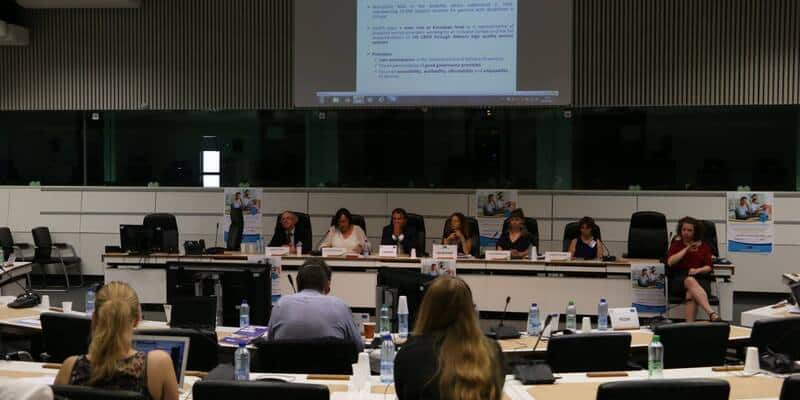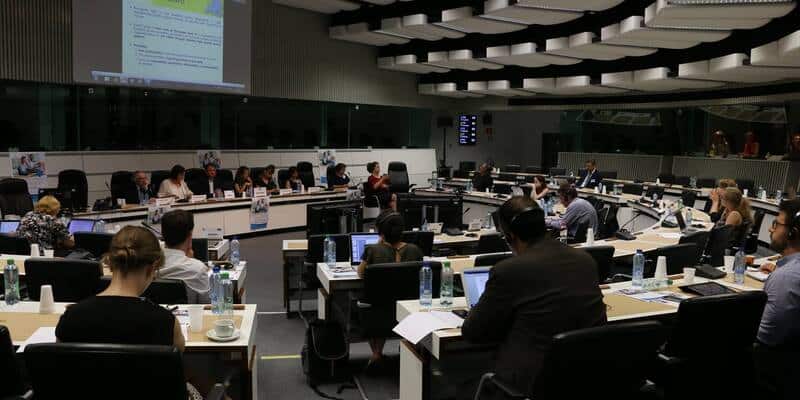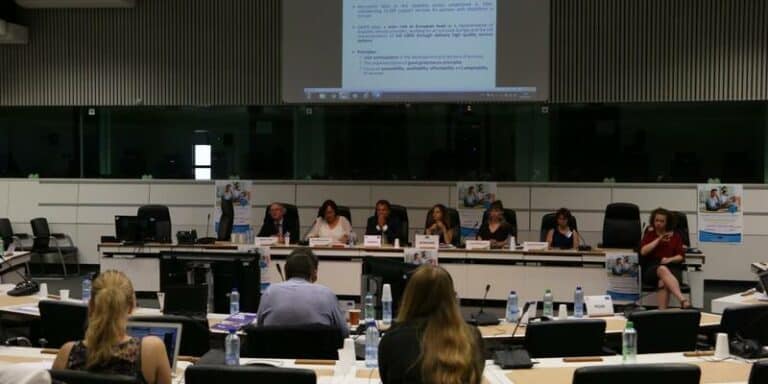Am 22.und of June, the EUD attended a public hearing on equal treatment in employment and occupation organised by the European Economic Social Committee (EESC). The aim of the event was to follow up on equal treatment in employment directive 2000/78/EC and to analyse what has been achieved and what is still to be done for the full implementation of the directive.
Irena Petraitienė, the President of the Permanent Study Group on Disability Rights of the EESC highlighted that the directive spells out the obligation to take appropriate measures to eliminate disadvantages, in line with the principles of reasonable accommodation for persons with disabilities in their employment, enabling them to “have access to, participate in, advance in employment, or to undergo training “(article 5 of the directive). The EU signed the UN Convention on the Rights of Persons with Disabilities (CRPD) – which covers employment, but also many other areas of life. This means that all relevant legislation, including this directive, policies and programmes at EU level must comply with its provisions. The prohibition of discrimination is related to the duty of ensuring ‘reasonable accommodation’ in favour of disabled persons (to eliminate the possibility of indirect discrimination).
However, Marek Plura, a Member of the European Parliament, noted that employment policies for persons with disabilities are insufficient. According to him, public and private employers have insufficient motivation to employ people with disabilities, as, they do not possess sufficient knowledge and fear extra costs and bureaucracy. Also, people with disabilities themselves are often not ready to work due to marginalisation and social exclusion. Mr. Plura noted that a comprehensive support system and mechanisms to ensure their independence while seeking employment are needed. Procedures for obtaining subsidies should be simplified and awareness campaigns on how to employ persons with disabilities should be conducted.
Dimitris Dimitriou, a Legal Officer in the unit on Disability and Inclusion of the European Commission (EC) elaborated further on the provision on reasonable accommodation. The CRPD defines it in its article 2 as ‘necessary and appropriate modification and adjustments not imposing a disproportionate or undue burden, where needed in a particular case, to ensure to persons with disabilities the enjoyment or exercise on an equal basis with others of all human rights and fundamental freedoms’. This means that the employer should make the adjustments that allow the disabled employee to be on an equal footing with others. Mr. Dimitriou noted that the obligation to eliminate barriers hindering the full and effective participation of persons with disabilities in employment on an equal basis with other workers is limited, as the provision of reasonable accommodation cannot impose a disproportionate burden on the employer. Recital 21 of the Directive elaborates on criteria to determine the reasonableness of a particular accommodation, such as financial and other costs, the scale and financial resources of the organisation or undertaking, and the possibility of obtaining public funding or any other assistance. Indeed, the burden is not considered unreasonable when Member States provide sufficient remedies, such as grants or subsidies to employers. Mr. Dimitriou highlighted that many challenges occur while enforcing the directive.
Ansofie Leenknecht from the European Disability Forum mentioned that the Directive does not address multiple and inter-sectorial discrimination of persons with disabilities in employment. She also noted that it is essential to have access to legal aid for persons with disabilities if they are discriminated against.
Stefan Trömel, from the International Labour Organisation (ILO), presented a guide produced by the ILO that promotes diversity and inclusion through reasonable accommodation in employment. He highlighted that compliance with legislation is not enough to ensure equal treatment, but that diverse and inclusive attitudes and the removal of unconscious bias of employers are essential.
The EUD highlights that for deaf employees who rely on sign language, provision of qualified sign language interpreter services is reasonable accommodation during their employment. In some cases, it may be necessary to have interpreter services available on a regular basis. For other employees or for job applicants, occasional interpreting on an as-needed basis may be sufficient.



















